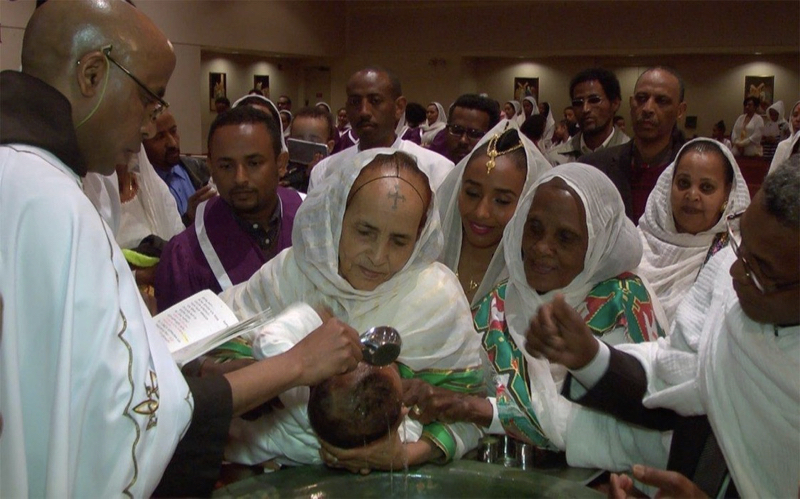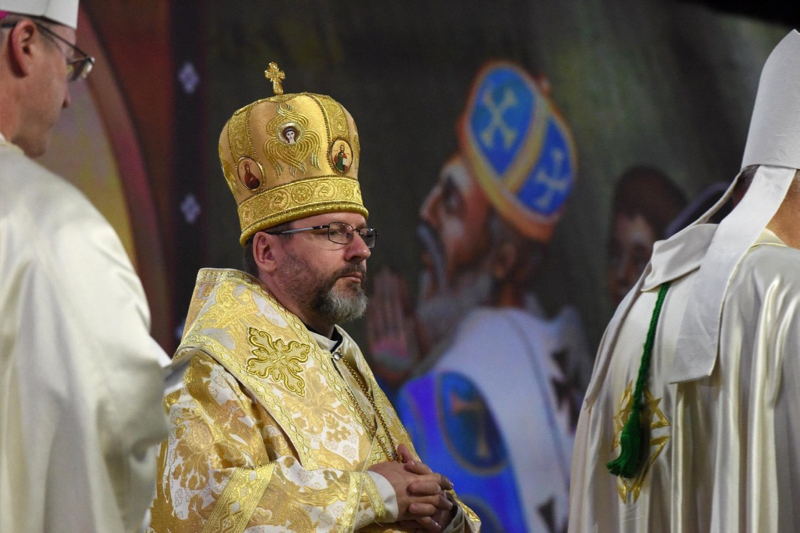The head of Ukraine’s Catholic Church has urged citizens to remain together in face of the Russian military build-up, and thanked Western Church leaders for their prayers and support.
“Confronted with the great threat assembled on our frontiers and great challenges facing our nation, we see how crucial internal unity is for our nation's security and survival”, said Archbishop Svetoslav Shevchuk of Kyiv-Halych, whose Church combines loyalty to Rome with the eastern liturgy. “We remember how Ukraine was resurrected and restored to statehood by the power of God's grace. Since we know this was God’s work, we ask him today: Did he seduce us with the scent of freedom, and does he now wish to take it away?”
The archbishop was preaching in Kiev on Sunday as the Ukrainian government demanded urgent talks in the current situation with Russian and other foreign leaders, amid Western warnings that Moscow could invade “at any time” after a dozen nations, including Britain, urged their nationals to leave.
Meanwhile, the Vatican's Kiev nuncio condemned “actions threatening peace in Europe”, and also urged Christians to “turn to God” and support one another. “It’s clear politicians are often unable to find appropriate means to overcome conflicts - there’s almost always some confrontation between party interests,” the Lithuanian Archbishop Visvaldas Kulbokas told Italy’s ANSA news agency on Monday. “My dream is to see more people sincerely and devotedly dedicated to politics, not just in Europe but everywhere, recognising it as a worthy vocation of service, and not leaving politics to those who use it as if the lives of others count for nothing.”
Pro-Kremlin separatists declared independent republics at Luhansk and Donetsk in 2014, triggering a war which has left more than 14,000 dead. Up to 130,000 troops are currently deployed on Ukraine's borders, with Russian warships patrolling the Black Sea and Sea of Azov, prompting warnings of a possible attack this week, despite the arrival of US and Nato reinforcements in Poland, Romania and other East European countries.
In his Sunday Angelus address, the Pope described news from Ukraine as “very disturbing”, and appealed to “the conscience of politicians” to ensure “every effort for peace”.
The Orthodox Ecumenical Patriarch Bartholomew I also urged all parties to maintain “the path of dialogue and respect for international law”. “Human conflict may well be inevitable in this fallen and broken world, but war and violence must certainly be resisted,” Bartholomew told a Sunday congregation at Istanbul's St George church. “Silence and indifference are not an option – there is no peace without constant vigilance.”
Ukraine’s independent Orthodox church, which was recognised by Patriarch Bartholomew in January 2019, circulated new prayers this week for “the victory of truth and a just peace”, at a time when enemies had “gathered to destroy the state and sanctuary”, while its spokesman, Archbishop Evstratiy Zorya, bitterly criticised the country's Moscow-linked Orthodox leaders for remaining silent on the Russian threat. Some 7,000 parishes around Ukraine are in this independent Orthodox Church of Ukraine, but another 12,000 or so are in the Ukrainian Orthodox Church, which has retained a relationship with the Russian Orthodox Church and is often referred to as the Moscow Church.
Archbishop Shevchuk said prayers by Western Church leaders were an unusually important signal not just for Ukraine but for all Europe, adding that Christians should stand together at a difficult time of military threats from the Russian Federation.
Bishop Vitaly Krywyckyj of Kiev-Zhytomir in eastern Ukraine told Italy’s Servizio Informazione Religiosa that some citizens hoped to flee westwards, “counting that war activities will not reach them in the event of an invasion”, but added that most were remaining and resisting panic, while Catholic clergy planned to stay with them.



 Loading ...
Loading ...